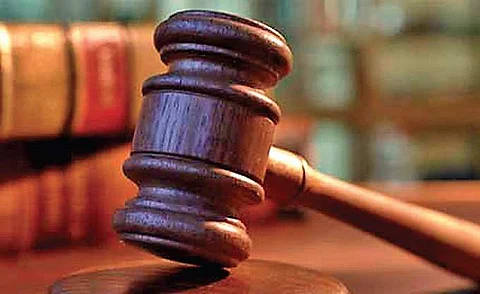

Courts are regarded as temples of justice where proceedings are conducted in a solemn forbidding atmosphere. Yet there are lively humorous moments showcasing both lawyers and judges.CK Daphtary, who later became Attorney General for India, was arguing a case relating to stock exchange transactions before Justice Somjee in the Bombay High Court.
It was generally known that Daphtary had dabbled in stock exchange. During arguments, Daphtary insisted on putting a relevant question to a witness but the judge did not permit that and moreover made a nasty remark, “Mr Daphtary, you would of course be very familiar with stock exchange matters.” Daphtary kept his cool. Later, when a Law Reporter which was cited before the judge was not in the judge’s library and therefore was handed over from the Bar, the judge testily remarked, “Mr Daphtary, there is a bug in the Law Reporter”. Daphtary retorted, “My Lord, this is not the first time that a bug has travelled from the Bar to the Bench”. There was stunning silence in the court as Justice Somjee, who was appointed from the Bar, sank into gloomy silence. There was widespread appreciation of Daphtary’s memorable retort.
In an Income Tax appeal, senior counsel RJ Kolah was vociferously arguing his client’s case which led Chief Justice MC Chagla, who was on the Bench, to remark, “Mr Kolah, me thinks the lady protesteth too much”. Kolah apparently not familiar with Shakespeare was shocked and exploded, “My client is a joint Hindu family, there is no lady in my case, your lordship is mixing up my case with some lady’s case”. Chief Justice Chagla with a benign smile agreed that there was no lady in the case and asked Kolah to proceed.
There was a Christian advocate in the Bombay High Court who was very proud of his name ‘Servulus Baptista’, so different from common Christian names. Chief Justice Tambe in the course of delivering an oral judgment could not locate the exact page of the Law Reporter that was cited. He looked at Baptista who had appeared in the case and was in court and loudly asked ‘Lobo, what page?’ A crestfallen Baptista gave the number of the page. Minutes later CJ Tambe was prevented by his brother judge on the Bench from repeating his mistake about the name of the advocate. With a beaming smile Chief Justice Tambe told Baptista, “There was an advocate in Nagpur called Lobo, so I called you Lobo”. There was merriment and subdued laughter in court. CJ Tambe’s explanation was poor consolation for Baptista who was thereafter greeted by naughty lawyers with cries of ‘Lobo, Lobo’ in the Bar Library and in the Bar Association.
The first passport case, Satwant Singh Sawhney v/s Union of India, was heard by a Constitution Bench of the Supreme Court. Justice CA Vaidialingam, who was a member of the Bench, was singularly silent during the proceedings. I was counsel in the case. Lawyers in court challenged me to break
Justice Vaidialingam’s monastic silence and promised me a princely sum of `100 if I succeeded. In the course of my arguments, I asked, “Has my Lord Justice Vaidialingam got a copy of my written submissions?” The judge replied in three words. “Yes, I have”. The silence was broken but I was not paid the promised sum because just three words were not considered sufficient.
A probationer had challenged his termination in his writ petition before the then Goa Bench of the Bombay High Court on the ground that he was not heard before the order was passed and hence the principles of natural justice were breached. Appearing for the department, I argued that when probation is terminated according to its terms there is no requirement of prior hearing unless any aspersion of inefficiency or laziness is cast on the probationer. The argument appealed to the judge who asked the probationer’s counsel, “Show me where has the department called your client a lazy bugger”. Probationer’s counsel protested and said he would rely on Supreme Court judgments to support his case. But the learned judge was not persuaded. On the pretext of going to the washroom I left the courtroom, laughed my sides out in the corridor and returned after two minutes to find that the lazy bugger duel was going on. The judge pronounced his judgment rejecting the probationer’s writ petition on the ground that there was no material on record that any aspersion was cast on the probationer that he was a lazy bugger. Certainly not a landmark judgment.The above are a few instances to illustrate fun and games in court in which both lawyers and judges are participants.
Soli J Sorabjee
Former Attorney-General of India
solisorabjee@gmail.com